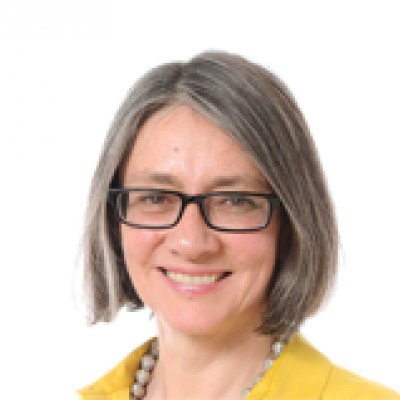Co-production: Everybody’s talking about it, but am I really doing it?
10 October 2017

On World Mental Health Day, it’s timely to reflect on how mental health services are changing. A conversation with members of the Health Foundation Alumni Mental Health Group (a supportive group of Health Foundation Fellows working in mental health) made me reflect on my experiences with a subject that seems to be on everyone’s lips … co-production.
Co-production has become a buzzword among those commissioning, designing and improving quality in mental health services. And mental health services are ahead of the field in this. With its roots in the civil rights movement, co-production is advocated or supported by commissioners, charities, institutes and government departments. But it should also be at the heart of what doctors do in day-to-day clinical practice. Reflecting on this helps me to remember the radical nature of the concept and keep a critical eye on how ‘co-productive’ I really am.
As a doctor, I am familiar with the power of stories. I use the word ‘story’ to indicate the dialogue I have with my patient as we try to make sense of the issues being discussed. When teaching, I advocate the use of open rather than closed questions. I encourage students to use their own words rather than jargon, and to check the meaning behind the words their patients use.
The clinical experience should be an act of active co-production: an opportunity for patients, service users and health care professionals to make sense of the words used and bridge the gaps between their thinking. This collaborative effort can help them reach a joint understanding and creates appreciation on both sides for possible or desirable future action – a co-produced care plan.
But how much do I really listen in practice? How collaborative is my approach under pressure? As a psychiatrist, I am in a position of power through my professional status and responsibilities under the Mental Health and Mental Capacity Acts. Yet when pushed for time, there is a temptation to cut the collaborative process short, to retreat to the familiar position of being the expert who ‘knows’ what is best.
Active listening, a lynchpin of health coaching, requires the suspension of action – not moving too quickly to a problem solving approach. This allows people to come up with their own ideas about how to move forward (or not…), ensuring plans are collaborative and co-produced. It also means recognising the shared nature of expertise. My expertise comes from my professional background, whereas people are experts in themselves, their strengths, history, culture and communities. Co-production requires me to rein in my position of power, and acknowledge and respect the patient or service user’s own expertise. This is challenging when, for millennia, doctors have been placed in positions of power.
I have found the recent focus on hearing people’s stories helpful in understanding the meaning of quality from a patient’s perspective. Working in a team with patients, service users and peer workers is a powerful reminder of the value of lived experience – I am not the only expert in this process. A service user colleague challenged me recently: ‘How much are you really prepared to change your view? Because if you’re not, then there’s really little point in continuing.’
Both in the clinical environment and the wider system, professionals behave as if co-production can be ‘added’ – an addendum to satisfy patient groups, grant-giving bodies, commissioners, managers and boards. But in true co-production we should anticipate an element of surprise – shifts of power that can be personally and professionally challenging. If it is too easy, we should question whether we’re doing co-production, or simply playing at it.
Although my approach to co-production will not be revolutionary and is inevitably flawed, I will carry on. My actions are not worthless or insignificant. An increased interest in co-production provides a real opportunity to change the way we do things. The health service was designed at a time when the world was different, and the next generation of health care professionals will undoubtedly have to do things differently again. Co-production is a great way to start to think about the future in exciting new ways.
Helen Crimlisk is Deputy Medical Director and Director of Undergraduate Psychiatry at Sheffield Health and Social Care NHS Foundation Trust
Work with us
We look for talented and passionate individuals as everyone at the Health Foundation has an important role to play.
View current vacanciesThe Q community
Q is an initiative connecting people with improvement expertise across the UK.
Find out more

